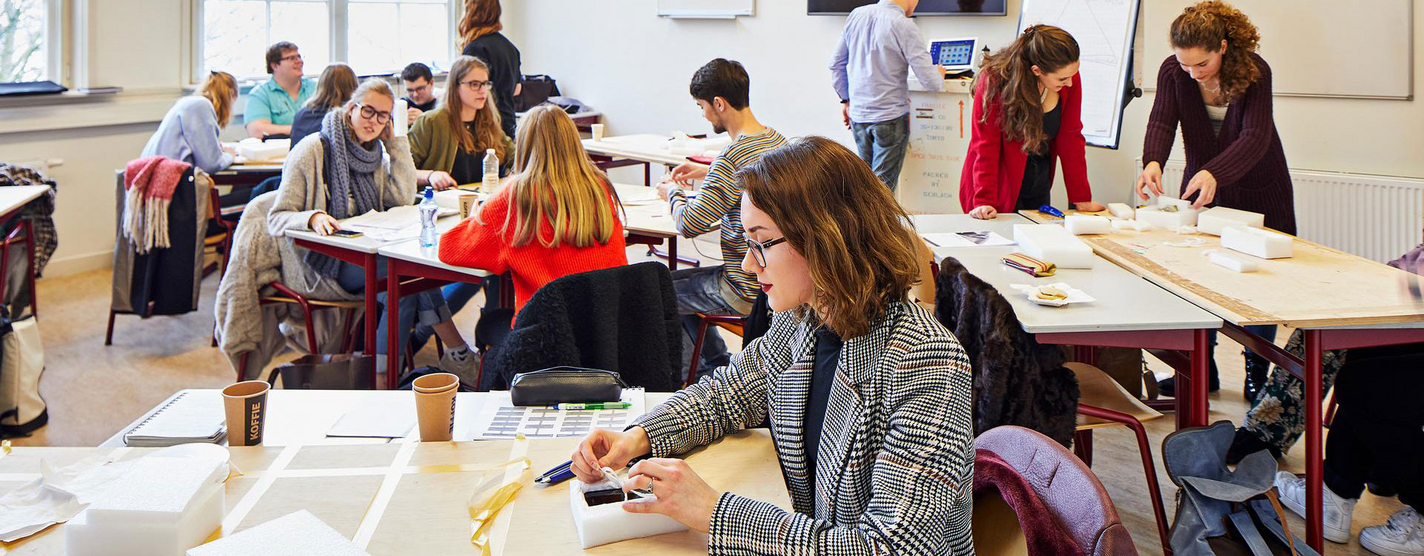
Life long learning
The principle of lifelong learning means that you will keep on learning, This is necessary because also after obtaining your diploma, your workfield remains in motion. Because technological developments follow each other quickly, our environment and area of expertise are also developing rapidly. You do not stand still yourself either: do you want to deepen, broaden your knowledge or both? Are you staying within your own discipline or are you looking for a connection with other fields?
Training professionally
Depending on your profession, it requires more or less training to stay on level. Sometimes that goes without saying: you always learn new things by simply working. Remember that you also learn when you read professional literature or visit presentations, lectures and symposia. Make sure you stay up to date with what is going on in your area of expertise and make an estimate of the consequences for your own professional practice. Cause new developments also offer new opportunities.
You can take courses to broaden or deepen your professional career, to push the boundaries of your work area literally and figuratively or to learn about the business side of your work. Keep in touch with your own academy, these often offer a range of courses in your area of expertise. For example, the AHK offers various workshops, masterclasses and courses to broaden or deepen your professional practice.
Trade unions, professional associations, cultural organisations and various commercial institutions also offer coaching, advice, information and courses. Established (cultural) institutions sometimes offer interesting learning places or talent development programs. In addition, Creative Europe Media finances a variety of training courses for professionals. They offer a good overview of these training courses on their website.
Directly to:
Directly to 'Professional media':
Career development
Consider your personal development: where are you now, what suits you? What challenges do you want to face and in what time frame? Do you want to become even more proficient in your own field or do you want to broaden your focus? If you need help to answer these questions or to take the next step, you can, for example, consider working with a career coach or start an intervision group with colleagues. Talk to peers about how they handle certain things. They can ask good questions, share valuable experiences and practical tips.
Many people in this sector have a mixed or broad professional practice. This may have a practical reason: different types of work also means that you have multiple sources of income. It can also be inspiring and thus contribute to your development. Teaching / arts education is common: privately, at schools or at institutions. You can also use your competences in a different field or for other target groups. Your value for working in a different context may be that you view and question a problem, organization or environment with different eyes. In transdisciplinary collaborations you can use your talent and craftsmanship to shape and imagine a new future.
Business training
There may also be times when you might be able to use help in the business area: perhaps you want to start as a self-employed person, enter the labor market, develop your company or grow your organisation? Perhaps you want to push your boundaries by working abroad or use your competences in a different field? Then a business reorientation is very useful: how do you present yourself, what are your opportunities, which revenue model is realistic, what does your business plan look like or where do you find that job that suits you well? For students and alumni from the AHK who want to improve their business knowledge and skills there are various business courses.
Investing: time and money
Continuously developing yourself professionally is a necessary investment in a healthy professional practice. You invest time and possibly money to keep a sustainable career. Because this is becoming increasingly important for all workers in the Netherlands, more and more attention is paid to enabling lifelong learning. Initiatives to lower the threshold come from, among others, the government, funds, employers, educational institutions and professional associations. For example through financial support, by recording personal learning rights or by developing more and more affordable offerings.
Directly to: